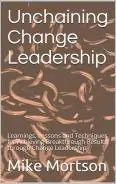
Performing background checks and criminal record screening on potential employees is a hotly debated issue, as some experts feel such a practice might prevent ex-felons from entering the job force, while others maintain that it is an absolutely necessary step to create a safe workplace.
How do you protect the rights of an individual with a criminal past without compromising the rights of other employees to a secure work environment?
Let’s examine how a business owner can protect his company by using criminal record checks while also lending a helping hand to ex-felons willing to leave their past behind.
The benefits of using background checks
The first and foremost benefit of submitting all your present and future employees to criminal police checks is that it allows you to know exactly who works for you. You probably know their resume, you know what education they have, where they’ve worked before, but a quick background check from online services like Australian national character check allows you to know what sort of life they’ve had.
Doing a background check will tell if they’ve committed any offences previously and of what type, because this also matters.
An individual with a minor offence, long in the past, will probably not pose any danger, but someone who frequently gets in trouble with the law is a clear risk. Even if they do their job and don’t cause any particular problems in the workplace, you can never know when they might be arrested again. The point is why would you spend time and money on such an employee? That’s a bad investment.
What is the easiest way to do criminal record checks?
You don’t want to burden your HR with an additional task and more red tape. In today’s world, doing background checks on your employees is extremely easy as all you need to do is set up an account with an online character check agency and use them every time you need a police clearance on someone.
These agencies are accredited with Crimtrac and have access to police databases in all Australian states and territories. You can get a full police check on anyone in a couple of days, straight to your email.
How do you use information from a criminal record?
You have to be very careful about the way sensitive information from an individual’s criminal record is handled. Passing on private information of this type to third parties is illegal. Only those who need to know, like your HR manager, should have access to such information.
If the criminal record comes back clean, you can hire that person immediately, knowing they’re in no way dangerous to your company or the rest of the staff.
You should extend such measures to any gig workers or independent contractors that you might employ. Anyone who has access to your internal network or represents your company should be properly vetted.
However, when you discover that an individual has some offences on their criminal record check certificate, you’ll have to analyze the merits of each hire. A good professional with a drunk driving offence committed five years ago can be a valuable addition to your team, unless, of course, they’re applying for a position as a driver.
On the other hand, you’ll have to think very hard if you really want to hire an equally good professional with a serious offence on their record. If you have a choice, you probably won’t want to hire a persons with sexual harassment convictions or a person with a serious drug habit.
This way, you keep your business safe, you don’t waste money on bad hires which result in a high employee turnover and the rest of your staff will feel secure in the workplace.


Why would you not hire that person, if after and during those 5 years their record was spotless?